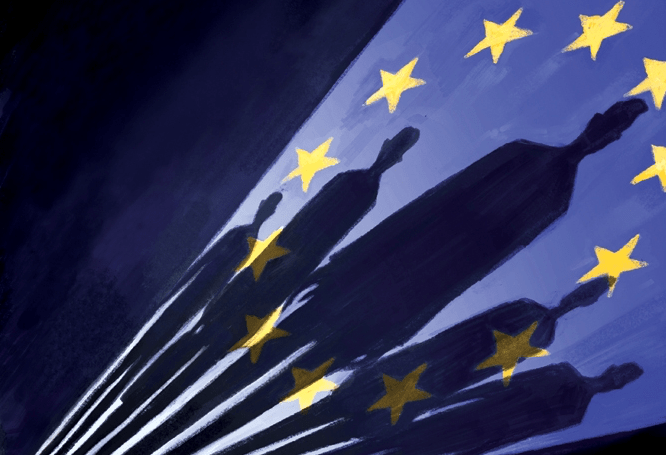The recent election in Poland has been presented by some as a triumph of liberalism over the dark forces of populism, but this is a misreading of events. It’s said that the Law and Justice party, which has ruled Poland for the past eight years, was trounced, but it won the largest share of votes (35 per cent) and the largest number of seats in parliament. It is nevertheless almost certain to lose power because three other parties – Donald Tusk’s Civic Platform (PO), the centre-right Third Way and the Left party – will likely form a coalition against it.
The result does little to reverse Europe’s rightward drift, and neither does it turn Poland back in the direction of the EU (Tusk is better known in Britain as the former president of the European Council).Tusk made a big issue of abortion rights, promising to reverse the near-complete ban introduced by the Law and Justice party. One of his first acts, he has said, will be to legalise abortion up to 12 weeks. But it is by no means certain that he will be able to get this measure through parliament, given that many MPs in his would-be coalition are unsupportive.
The EU is no longer a comfy nuclear family of wealthy western European social democracies
Poland remains a socially conservative country whose population is resistant to many of the prevailing values of western Europe. An arrogant assumption that Poles would change their minds explains why Law and Justice remains the most popular party.
The idea that Brexit revealed Britain to be a right-wing aberration on a continent otherwise committed to social democracy could not be more wrong. Only five EU countries can currently be said to have left-leaning governments. Moreover, one of them, Germany, has seen the right-wing AfD win local elections in recent months. Another, Denmark, has a government that holds onto office through a migration policy that would be considered far-right by many in Britain.
Far from turning in a liberal direction, voters in Europe are making it clear that they reject the migration policies forced on them by the EU and the European Court of Human Rights. There is little appetite for EU attempts to distribute migrants across the bloc. Southern European countries have been left to shoulder the biggest burden and are losing patience. The EU’s efforts to force member states to accept more migrants – and face fines if they do not – resulted in Poland and Hungary being overruled by qualified majority voting earlier this year.
The tension that is evident in Britain between a public which wants illegal migration stopped and the human rights infrastructure which tolerates and promotes mass asylum claims can be seen in all EU countries. The major difference is that anti-migrant feelings are much stronger elsewhere than they are in Britain.
Poland, Hungary and the Czech Republic all clashed with the EU far more robustly than Britain did in the years leading up to Brexit. In Poland, the EU threatened to withhold funds in protest at the country’s stance on abortion and gay rights and its authoritarian treatment of the media.
That this hasn’t led to a large movement in Poland demanding withdrawal from the EU is largely down to financial self-interest. Britain was a net contributor to the EU budget, whereas countries like Poland and Hungary have done well out of membership.
As prime minister, Tusk will inevitably try to reposition Poland at the heart of the EU though this ambition is doomed to fail. There’s little Tusk can do about the European people’s growing rejection of the EU’s unworkable vision and the fact that they are pushing back against political integration. Even Tusk’s party has said it will not sign up to any EU proposals that see the numbers of migrants rise in Poland. This is a position Tusk would have blasted from Brussels.
The scope of the EU’s ambition has been its downfall. The absorption of former Soviet countries nearly two decades ago has changed the dynamic. The EU is no longer a comfy nuclear family of wealthy western European social democracies; rather it has become a raucous extended family of conservative cousins and aunts.
When Emmanuel Macron and Olaf Scholz recently advanced their idea of a concentric Europe formed of a committed core and less-committed outer rings, it was widely interpreted as being an invitation to Britain to take up some kind of associate membership. Tusk had been visibly mortified when Theresa May presented him with her letter informing him of Britain’s intention to leave the EU. He then led the efforts to make an example of the UK for its temerity in leaving the club.
This will have been part of the Macron-Scholz calculation, as evidenced by the announcement of the idea just ahead of Keir Starmer’s visit to the Élysée Palace. But perhaps the notion of a concentric Europe was not just about attracting Britain: EU leaders may be looking ahead to the day when the drive for ever-closer union becomes incompatible with the membership of Poland, Hungary and other recalcitrant member states.
In spite of this week’s Polish election results, that day could be fast approaching.






Comments